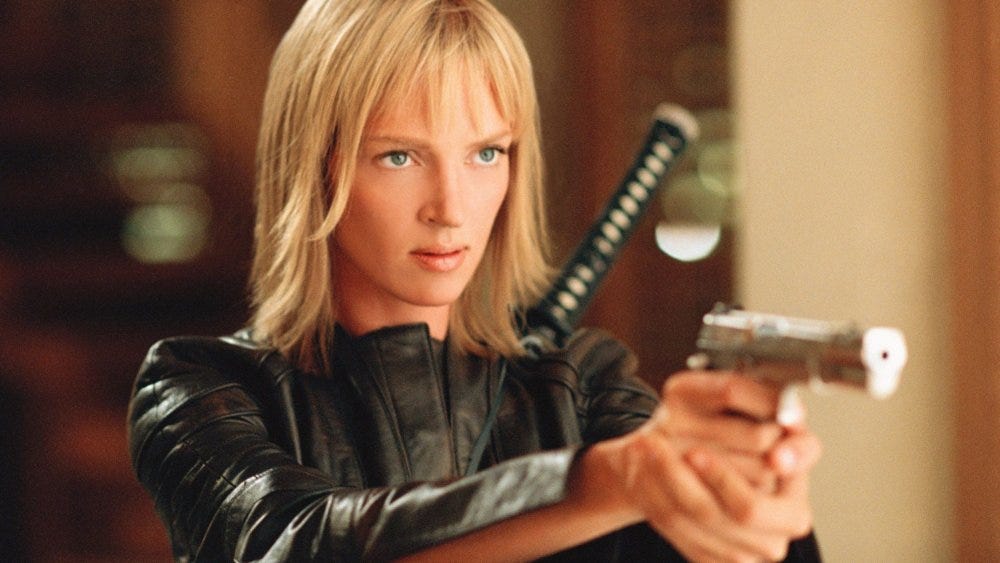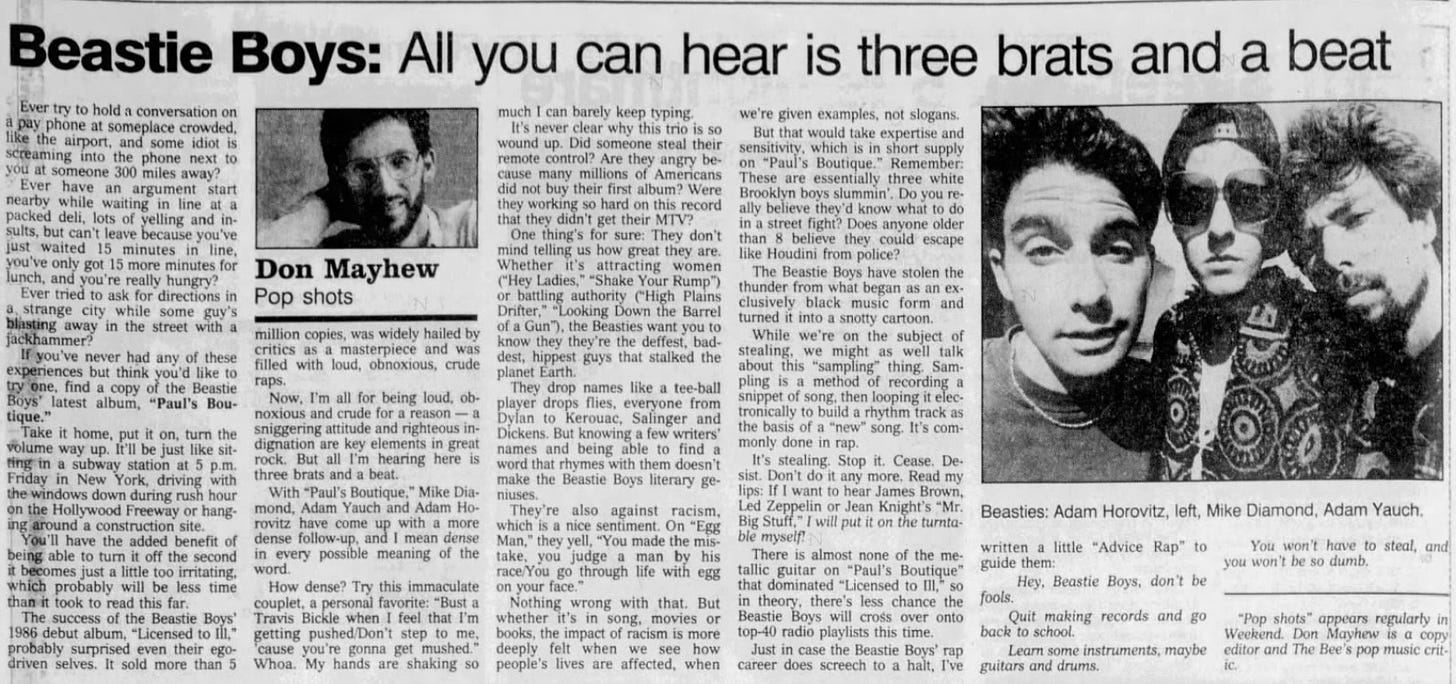You don't look like a celebrity
Telling people they resemble a famous person is creepy
Every now and then, social media allows all of civilization to take part in a mass psychological experiment. Is the dress blue or gold? Is the guy saying “Yanny” or “Laurel?” Can you finish a simplistic word game without broadcasting your results to the world every day?
The pinnacle, however, came a few years ago when Twitter and Facebook users challenged each other to post photos of their celebrity doppelgänger. (This has been occasionally revived as “who would play you in the movie about your life,” “who do you get mistaken for,” etc.)
It was the perfect confluence of delusion and narcissism on social media platforms that specialize in - and encourage - both. We all gazed in horror as our sporadically-toothed cousin declared his facial similarities to Brad Pitt. When Wanda in accounts receivable tried to convince us she is often mistaken for Reese Witherspoon. And so on.
The truth is, you probably don’t look very much like a celebrity. If you did, you would most likely be a celebrity. Are there a lot of guys that look like Ryan Reynolds wandering the planet in the wild? There are not. It would take you months of sitting in a tree with binoculars to catch a view of a Gosling (both the duck and the actor.)
The only reputable thing to do when asked to declare your celebrity look-alike is to post a photo of someone you look nothing like (I opted for Idris Elba), or someone aesthetically displeasing (why is everyone searching for Ed Asner photos all of a sudden?) This serves two purposes - it shows people you don’t take yourself seriously, and if anyone agrees with you, it is a cue to never speak to them again. A real time-saver.
Of course, the converse of the person who wants to tell you what famous person they resemble is the person who insists on telling everyone else what celebrity they look like.
Do not do this. It is the worst.
In high school, I had a friend who had a compulsion to tell everyone he met who they reminded him of. It never went well. It frequently resulted in discomfort and awkwardness, even more so than we, as teenage boys, naturally fomented.
For one, if you think someone looks like a famous movie star, then a great number of other people think that as well, and this person has heard it many times before. You are simply annoying them.
Secondly, as discussed above, the person probably doesn’t really look like the famous person you’re thinking of. Throughout college, one of my best friends was a heavier-set guy - everywhere we would go, someone would come up to him and tell him he looked like Chris Farley. Then, after Chris Farley died, everyone would come up to him and tell him he looked like Drew Carey. He looked like neither. People just tied him to whatever chubby celebrity was popular at the time. (He has now lost weight and is skinnier than I am, so he is dead to me.)
For some reason, there is always a celebrity out there who serves as a catch-all for looks comparisons. Back in the 1990s, it was frequently Uma Thurman. If a female friend of yours wanted to set you up on a date and told you the girl wasn’t “traditionally pretty” but looked like Uma Thurman, it was a sign you should put on your track shoes and run.
Because the girl you were being set up with never looked like Uma Thurman, and - side note - Uma Thurman is traditionally gorgeous.
(Double side note: After college, I met a girl in a bar in Chicago who actually did look like Uma Thurman. She asked me if I wanted to get coffee, and I told her I don’t drink coffee. I never saw her again, primarily because I spent subsequent years with my head in an oven.)
But there’s also a third thing. A celebrity comparison isn’t necessarily a flattering thing. Just the other day, a friend told me I reminded them of a character on the Ricky Gervais Netflix show “After Life.” The character of Brian Gittins, played by actor David Earl, is a dumpy, shaggy guy with bulletproof glasses and who has a fascination with anuses. (“Ani?”)
I am certain this was meant as a compliment. It was not, and I felt terrible. I am now dedicating myself to not looking like the creepy anus guy. (Sample quote: “The man who is tired of the anus is tired of life.”)
This especially goes for people who may bear some passing resemblance to someone who is infamous or committed heinous, unspeakable acts. “You look like Marjorie Taylor Greene” will not earn you the adoration of the woman (and occasional man) to whom you say it. Even if it is raging in your brain, you should not tell someone they resemble history’s greatest monsters, like Ted Bundy or Adolf Hitler or Jake Gyllenhaal.
What you’re doing when you tell someone they look like someone else is essentially sapping them of their uniqueness. Everyone likes to feel like they’re original - one of a kind. But when you make a celebrity comparison, you’re distilling them into a type. You’re categorizing them in a way they may not appreciate.
And, of course, there is a separate category of creepiness for guys who use a celebrity comparison as their lead-in to meet women. This is never a good idea, even if there are women who would appreciate being compared to a fashion icon or whatever. If a woman looks like Jennifer Aniston, she does not need to be told she does - she already knows. And she will immediately be thinking, “this idiot needs better material.”
Even if you do hit pay dirt - telling someone they look like a celebrity that nobody had previously thought of, and they are legitimately flattered - it’s pretty much a conversation killer. Where do you go from there? A discussion of Benedict Cumberbatch’s recent works?
A celebrity comparison is simply a recipe for disappointment. When you tag a normal person with a famous analog, their persona simply becomes “Michael B. Jordan, but not quite as hot,” not “Adam, who knows a lot about wine,” or “Cecil, who has great taste in music.” Their aura is based on how they fall short, not their relative benefits.
Words to live by from your boy “Fat Keanu.”
ALSO: Last week, I was a guest on “The Remnant,” a podcast hosted by The Dispatch’s Jonah Goldberg. Over the course of the hour, we discuss the spread of misinformation, why you shouldn’t gargle Listerine to cure COVID, and why people think conservatives aren’t funny. Check it out here:
ALSO: Those who follow me on Twitter know that I run a side-Twitter feed called “Zero Star Reviews,” in which I post historically terrible critical reviews of classic works. You can follow the feed here.
My favorite one to date has to be when Fresno Bee music reviewer Don Mayhew shredded the Beastie Boys’ classic album “Paul’s Boutique” by writing them an “advice rap” song of his own:
“Hey Beastie Boys
Don't be fools
Quit making records
And go back to school"
Read the full thing here.





